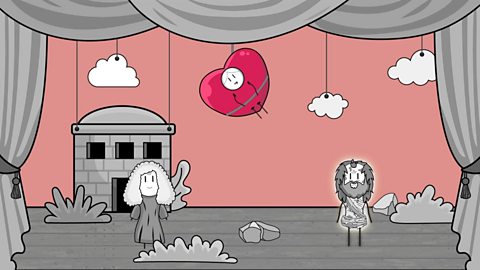Christian morality
Simon and Sarah discuss the importance of morality
Moral decisions fall into two main categories - absolute and relative
Absolute morality

People who believe in absolute morality are called absolutists.
They believe that moral rules are fixed and never change.
They argue that what is right or wrong does not depend on the situation.
Absolutists argue that moral rules apply to everyone.
Religious rules are often absolute, e.g. the 10 commandments because they come from God.

Relative morality
People who believe in relative morality are called relativists
They do not take a black and white view of morality.
Relativists argue an action is right or wrong depending on the situation.
They believe that if the consequences are good, then the action is allowed.
What is a person's moral value?

A person’s moral value or conscience is their sense of what is right and wrong.
It is formed and influenced by a variety of different sources such as family, friends, culture and life experiences.
Many of the laws and rules in society today have their basis in religion, such as the 10 CommandmentsThe list of rules, revealed by God to Moses, found in the Old Testament books of Exodus and Deuteronomy. Also known as the Decalogue..
Moral value can be seen in the choices people make.
In Christianity, Jesus' moral value is seen throughout the Gospels where He was always willing to set aside the rules to do the most loving thing.
This frequently led Jesus into conflict with the Jewish Religious Leaders because he did not always follow their rules.

The Moral Vision of Jesus

Jesus Heals a Man on the Sabbath (Matthew 12: 9-13):
Pharisee oral law (insert glossary term for oral law) said no one could work on the sabbath.
Performing a miracle was considered work.
Jesus healed a man’s shrivelled hand on the sabbath and so broke a cultural law.
Jesus' moral vision can be seen in his sense of right and wrong:
- He thought the most loving thing to do was to heal the man.
- It did not matter that he was offending the Religious Leaders.
- Jesus did what he thought was right, even though it affected his reputation.
Following Jesus' example is compelling for Christians when making moral decisions.
- He was selfless.
- He did not let what others thought of him dictate his actions.
- He always showed love to the those considered to be outcasts in society.
- He followed through on his action regardless of the personal cost.

Quiz time!
More on Morality and ethics
Find out more by working through a topic
- count1 of 7

- count2 of 7

- count3 of 7

- count4 of 7
